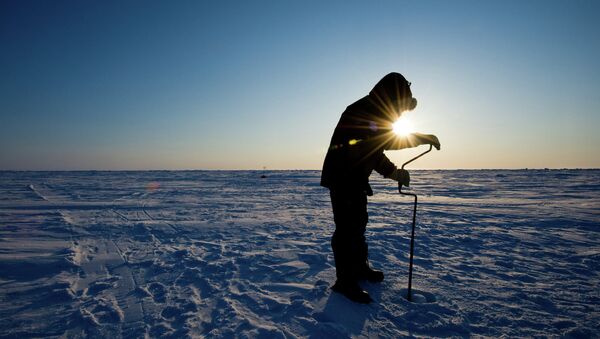MOSCOW, October 29 (RIA Novosti), Daria Chernyshova — Russia's submission to the United Nations Commission on the Limits of the Continental Shelf (CLCS) to expand its territories in the Arctic Ocean will most likely get the approval, and may be fast-tracked, experts in international, ocean and maritime law told RIA Novosti Thursday.
"I'm quite certain that Russia will be approved for some part of the continental shelf that it is claiming," Coalter Lathrop, professor at Duke University and specialist in international maritime law told RIA Novosti.
On Wednesday, Russia's Minister of Natural Resources Sergei Donskoy said that the submission would be made in spring 2015, and the expedition of the Russian research vessel Akademik Fyodorov has completed all the scheduled research in the Arctic.
Russia's original submission was made in 2001, but it was returned in 2002 with recommendations that were never made public. As Lathrop explained, this was "a bit unusual," since most recommendations by the commission are made public.
Aldo Chircop, professor of law with the Schulich School of Law at Dalhousie University, said that at the time it was the first such submission to be made by any state and was effectively pioneering the implementation of an important provision of the UN Convention.
"The Commission considered that submission and felt that a number of points needed additional scientific data and information," Chircop explained. "Given that Russia was the first state, I expect that the Commission will fast-track consideration of the Russian new submission."
CLCS RECOMMENDATIONS
According to Coalter Lathrop, the commission's original recommendations could have been about the status of the Lomonosov ridge.
"This submarine ridge is not a natural component of the Russian continental margin, I assume this is what the commission needed more information about. And that kind of information has been gathered over the past 12 years," Lathrop explained.
In line with the procedure, the commission will look at the new submission and it will make recommendations.
"What the commission's recommendations contain could be anything from a total rejection of the claim, to a partial rejection of the claim to a full endorsement of the claim. I expect that the commission will probably fully endorse the claim," Coalter Lathrop told RIA Novosti.
Myron Nordquist, Associate Director and Editor of the Center for Ocean Law and Policy pointed out that there could be no objections to the submission if all the requirements were met.
"The only objection would be if the data the Russian government provided was insufficient, in which case they would do what they did last time – they would return it so that the required data could be filled in. There are not going to be any political objections," Nordquist said.
ARCTIC PARTNERS
"Other Arctic, and probably also non-Arctic States, will be following Russia's new submission. It is possible that there might be overlapping claims to the continental shelf in the region," Aldo Chircop said, adding it is would not be unusual in maritime law.
"The Commission does not address maritime boundary delimitation matters. If there are overlapping claims, usually those matters are addressed on a diplomatic level by the states concerned. When problems of this sort are not resolved diplomatically, the UN Convention provides procedures for states to resolve their differences peacefully," Chircop said.
"Unlike Norway, Canada and Denmark (on behalf of Greenland) have not yet made scientific submissions to the Commission as required by the UN Convention," he added.
Canada is currently in the process of undertaking more scientific research to support its submission with regard to the continental shelf in the central Arctic Ocean.
"Until that submission is made we do not know the precise extent of the Canadian claim. The same applies to the Danish claim," Aldo Chircop noted.



